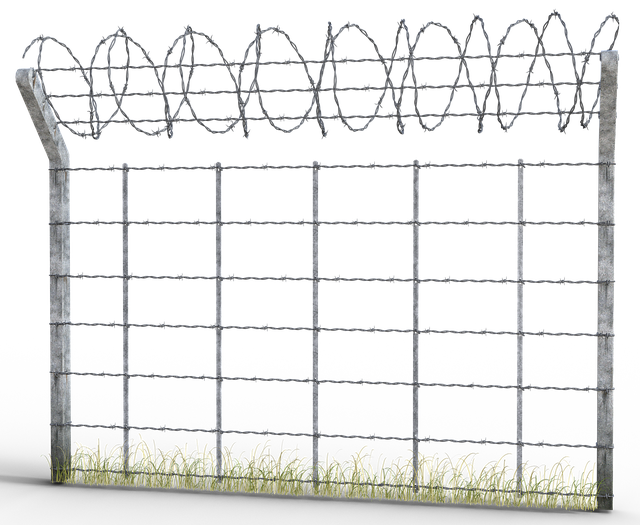New Bedford, MA residents are increasingly seeking eco-friendly fencing options that align with their commitment to sustainability. This article explores the diverse range of environmentally conscious fencing materials available locally, delving into their benefits for both homes and the broader community. By comparing traditional fences with sustainable alternatives, we highlight the positive environmental impact and aesthetic appeal of green fencing solutions, encouraging responsible choices in landscape design.
- Exploring Eco-Friendly Fencing Options in New Bedford
- Benefits of Sustainable Fencing Materials
- Local Availability of Green Fencing Solutions
- Installation and Maintenance Considerations
- Environmental Impact of Traditional vs. Eco-Friendly Fences
- Enhancing Your Space with Eco-Conscious Choices
Exploring Eco-Friendly Fencing Options in New Bedford
In New Bedford, MA, exploring eco-friendly fencing options is a growing trend among environmentally conscious residents and businesses. The city’s commitment to sustainability has sparked interest in alternative materials that reduce the ecological footprint typically associated with traditional fencing. Natural barriers like wooden fences made from locally sourced, certified sustainable timber offer both aesthetic appeal and durability without contributing to deforestation or carbon emissions.
Additionally, innovative options such as recycled plastic and composite fencing are gaining popularity. These materials utilize post-consumer waste, reducing landfill waste and the need for new resource extraction. Their longevity and resistance to rot and rust further enhance their sustainability, making them ideal choices for New Bedford’s diverse landscapes while promoting a greener and more resilient community.
Benefits of Sustainable Fencing Materials
In an era where environmental consciousness is on the rise, opting for sustainable fencing materials offers a myriad of benefits for both homeowners and the local ecosystem in New Bedford, MA. One of the primary advantages is the reduced environmental impact; traditional fencing often involves the use of non-biodegradable plastics or treated woods, contributing to pollution and soil contamination. In contrast, eco-friendly options like recycled plastic, bamboo, or organic hemp are durable alternatives that minimize waste and promote a healthier environment.
Additionally, these sustainable materials provide long-term cost savings. Although initial investment might be higher compared to conventional fencing, their longevity and resistance to rot, rust, and pests mean they require less maintenance and replacement over time. This not only reduces expenses but also minimizes the carbon footprint associated with frequent purchases and disposal. Moreover, many eco-friendly fencing solutions can enhance a property’s aesthetic appeal with their unique textures and natural colors, ensuring both functionality and environmental responsibility.
Local Availability of Green Fencing Solutions
In New Bedford, MA, there’s a growing trend toward eco-friendly fencing solutions. Many local suppliers and manufacturers are embracing sustainable practices, offering a variety of green fencing materials to meet diverse needs. From recycled plastic and wood composites to organic bamboo and reclaimed wood, options abound for those seeking environmentally conscious ways to define their outdoor spaces.
These locally available green fencing materials not only contribute to a cleaner environment but also enhance the aesthetic appeal of properties. They are designed to withstand harsh weather conditions, ensuring longevity while reducing maintenance requirements. By opting for eco-friendly fencing, New Bedford residents can make a positive impact on their local ecosystem and enjoy the beauty of nature seamlessly integrated into their backyards.
Installation and Maintenance Considerations
When considering eco-friendly fencing materials, Installation and Maintenance should be at the forefront of your mind. These natural options often require a different approach compared to traditional fencing. For instance, wooden posts might need regular treating with non-toxic preservatives to withstand weather conditions, whereas living or recycled materials may need specific care during installation to ensure their longevity.
Regular maintenance plays a vital role in preserving the fence’s aesthetics and structural integrity. This could involve cleaning, repairs, and occasional replacement of sections, especially for materials like bamboo or recycled plastic, which may have varying rates of degradation. Proper installation instructions and ongoing care will help maximize the benefits of your eco-friendly fencing choice, ensuring it serves as a sustainable and attractive addition to your New Bedford, MA landscape.
Environmental Impact of Traditional vs. Eco-Friendly Fences
Traditional fencing materials often have a significant environmental impact. The manufacturing processes for common options like wood and metal fences can contribute to deforestation, greenhouse gas emissions, and water pollution. Moreover, these materials tend to be non-biodegradable and may require frequent replacement due to rot, rust, or damage, leading to increased waste.
In contrast, eco-friendly fencing materials offer a more sustainable alternative. Products made from recycled plastic, plant fibers, or organic composites not only reduce the demand for new resources but also minimize waste and pollution associated with production. These options are often longer-lasting and more resistant to decay, which lowers the need for frequent replacement. By choosing eco-friendly fences, New Bedford residents can contribute to a healthier environment while enhancing their properties in an aesthetically pleasing and responsible manner.
Enhancing Your Space with Eco-Conscious Choices
When it comes to fencing, there’s more to consider than just aesthetics and functionality. Making eco-friendly choices for your New Bedford, MA property not only benefits the environment but also adds value to your space in unique ways. Natural materials like bamboo or recycled plastic offer visually appealing alternatives to traditional fencing, allowing you to create a beautiful and sustainable barrier.
These eco-conscious options blend seamlessly with natural surroundings, enhancing the overall look of your outdoor area. Beyond aesthetics, they provide practical advantages such as reduced maintenance and longevity. By choosing these materials, you’re contributing to a greener planet while enjoying a peaceful, harmonious environment that reflects your values right outside your home.
